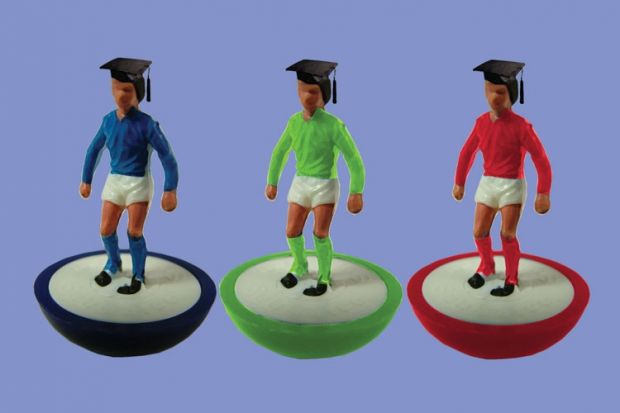Not so long ago, academics and scholars of my generation engaged in scholarship out of our love and passion for it. We engaged in it in an attempt to understand, and to extend the boundaries of knowledge. Our driving force was the pursuit of truth and the pleasure and honour of understanding. Now the values we held dear are being eroded.
We served on institutional committees and scholarly bodies around the world; we took on additional unpaid positions within our institutions; we served our societies and our nations without giving any thought to the notion of being in a market, or to our place in it; we peer-reviewed each other’s works and sometimes even attended conferences at our own expense. We understood our salaries not as forms of personal enrichment, but as fair reward for and recognition of our role in society. We somehow believed our work and our role to be priceless. By contrast with today, the not-so-long-ago world of academia and scholarship was innocent, driven by values and a deep sense of service.
Today, academics and scholars are like racehorses or footballers. They are bred somewhere, often far away, but are easily sold and traded in the market for large fees depending on the demand for their abilities and skills.
The richer nations and institutions are able to buy talent. Academics and scholars now put a price tag on the time and the knowledge that they devote to the various activities they participate in, be it peer-reviewing, serving on committees or boards, or doing assessments and marking examinations.
The market drives the appointments of academics across the world. They go where they command the highest salaries. Whether they be professors or vice-chancellors, money has become the most important factor.
However, what is forgotten in this trading is that the development of a great scholar requires an unquantifiable investment from a family, from an institution, from a country. None of these investments is taken into account when an academic is “bought” by one institution from another.
And what about when an individual who has been supported and nurtured by a country and an institution becomes successful, goes private or sets up a company using the knowledge base gained from public investment? Should not the public or the institution benefit from this venture?
Another often overlooked factor is that the richer and more developed countries and institutions are able to pick and choose the best talent and the highest achievers from anywhere in the world. The poorer and less developed countries and institutions become the breeding and training grounds for outstanding scholars but almost never enjoy the rewards of their investment.
Academics and scholars today are even more mobile than money. At least in sport there is a transparent transfer market and those organisations that foster talented individuals receive some recompense. Should this market-driven academic mobility have some review and oversight, with basic ground rules enforced, or should it just be left as it is? Is the unregulated freedom of individual scholars more important than the investment that their nations or institutions have put into them? What are the consequences for those from whom talent is snatched?
Register to continue
Why register?
- Registration is free and only takes a moment
- Once registered, you can read 3 articles a month
- Sign up for our newsletter
Subscribe
Or subscribe for unlimited access to:
- Unlimited access to news, views, insights & reviews
- Digital editions
- Digital access to THE’s university and college rankings analysis
Already registered or a current subscriber? Login

